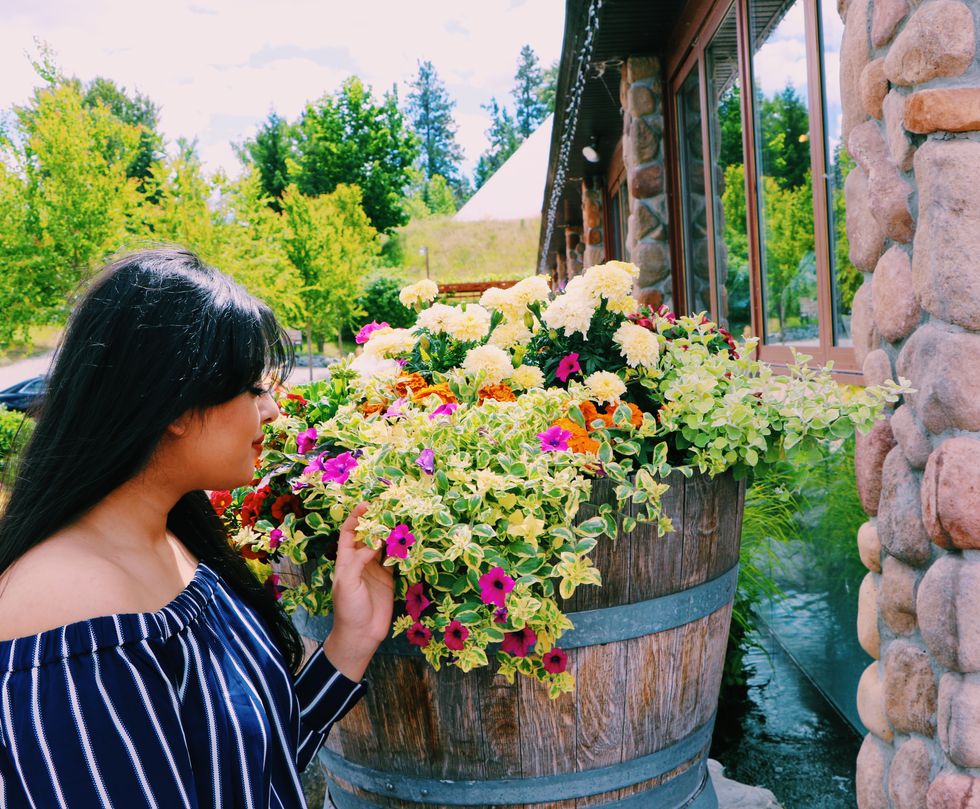The media and extremist anti-GMO advocates portray GMO’s in an unflattering light by manipulating consumers into believing that genetically engineered crops are a sinful entity that must be stopped at all costs.
Anti-GMO advocates prey on the public’s fear by feeding them the danger of insecticide that will ruin our health. What they don’t tell anyone is how unsupported these claims are. GMO’s are safe and exponentially more beneficial to the world than their organic counterparts. Genetically modified organisms are both safe and advantageous, and they are also critical to assist in solving world health and hunger issues, while organic products cannot say the same.
It's critical for the world to produce genetically engineered crops, because it's the only logical path if we are to feed billions of mouths every day, and organic foods won’t suffice.
GMO products can be made in mass quantities to feed the increasing population of the Earth, while non-GMO foods cannot be produced at the same rate. Some people decide to starve to make public statements like Gandhi; however, far too many people don’t, and they die of undernourishment and starvation. GMO foods are the only foods that are made specifically with nutrients to combat starvation, so if the world wants to even try to fix world hunger, GMOs are vital in succeeding.
Those who are privileged to have enough money to eat every day often assume organic products must be good and are better for the world. They can’t comprehend the extent to which world hunger effects the greater population because until they experience something or see it firsthand, they never will understand it. About 795 million suffer from starvation yearly.
This statistic puts into perspective how vital it is to have GMO food products, as they are the only things that can fight against starvation. World hunger is very sad and grotesque. GMOs are known to cure those of starvation through specific nutritional means; organic foods can’t make the same claim. It is our human race’s duty to help those who can’t help themselves, and GMOs are exactly what can achieve that.
In many scenarios of food distribution, quantity is needed, but it doesn’t need to come at the expense of quality and consumer safety. It’s important to note exactly what GMOs are crops created with modern molecular genetic engineering.
By definition, they aren’t malicious or made to harm people. The process of approving GMO crops, according to John Entine in “Exposing the Anti-GMO Legal Machine: The Real Story Behind the So-Called Monsanto Protection Act,” is like “running a torturous gauntlet” and “arduous."
The process of approving crops is precise and strict; therefore, it doesn’t allow for crops to be detrimental to consumers’ health and safety. GMO crops, therefore, aren’t approved nonchalantly.
The process has made to protect consumers from safety hazards; therefore, GMOs do not put consumers health at risk. Kavin Senapathy in “ Stuff The Food Phobia And Gobble Gratitude This Thanksgiving" even draws from studies that GMOs have “caused zero health problems and poses no unique threat to the environment.”
Senapathy proves that GMOs are not inherently harmful to consumers or the environment. Malicious anti-GMO advocates give GMOs a bad rap by feeding lies to the public that incite an uncalled-for fear. GMOs have actually proven to be lifesaving, such as in the case of creating insulin, which helps countless lives yearly. While GMOs are necessary for the growing world hunger epidemic, they also have been proven to be similar if not better than non-GMOs.
Anti-GMO advocates never mention that GMO products and anti-GMO products are the same in most regards; therefore, neither one is actually better than the other. Anti-GMO advocates claim that non-GMOs are holy and that GMOs are sinful. Organic products are good, but they are expensive and aren’t any better than GMO products.
In many cases, for example, non-GMO products can be more harmful than its alternatives. It takes more energy consumption to maintain ideal conditions for producing non-GMO products, which creates a larger carbon footprint, so in some cases, GMOs are more beneficial for the environment.
Another reason why many think that non-GMO products are better than GMO products is that they are depicted as helping local and small farmers. While in some cases that is true, the truth is that it isn’t. Many large corporations that buy out small farms and sell the organic goods make huge profits off this process.
The small farmer in many ways loses out. James Greiff in “Buy Organic, Help Big Food” revealed that organic brand Bear Naked granola had been purchased by Kellogg Co in 2007, who had “almost 15 billion in sales in 2013.” Likewise, Naked Juice and Odwalla products bought by Pepsi Co and Coca-Cola Co. Countless organic product companies have been bought up by industry giants and have taken away the supposed authenticity and support that is associated with buying organic products.
GMOs are critical in trying to end world hunger. Stigmas and preconceived notions are manipulating the public into believing simple lies. This ongoing battle detracts from the major reason why GMOs are beneficial.
Starvation causes people to not be in control of their body and unable to ameliorate their situation. If they can’t help themselves, who will? It doesn’t matter what anyone’s views on GMOs are, the human race needs to work collectively to solve a greater problem.
People need to get rid of their petty attitudes towards GMOs and see that they are the most beneficial and logical path for the world. At the end of the day, it is better to have more people alive and healthy than few healthy but many dying.
















